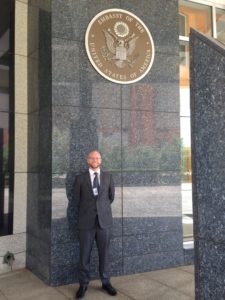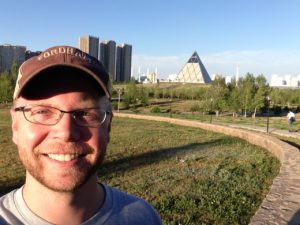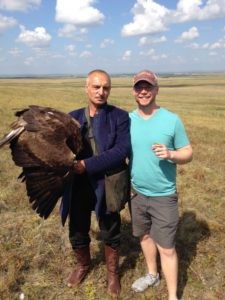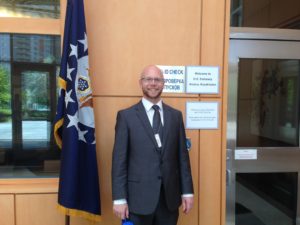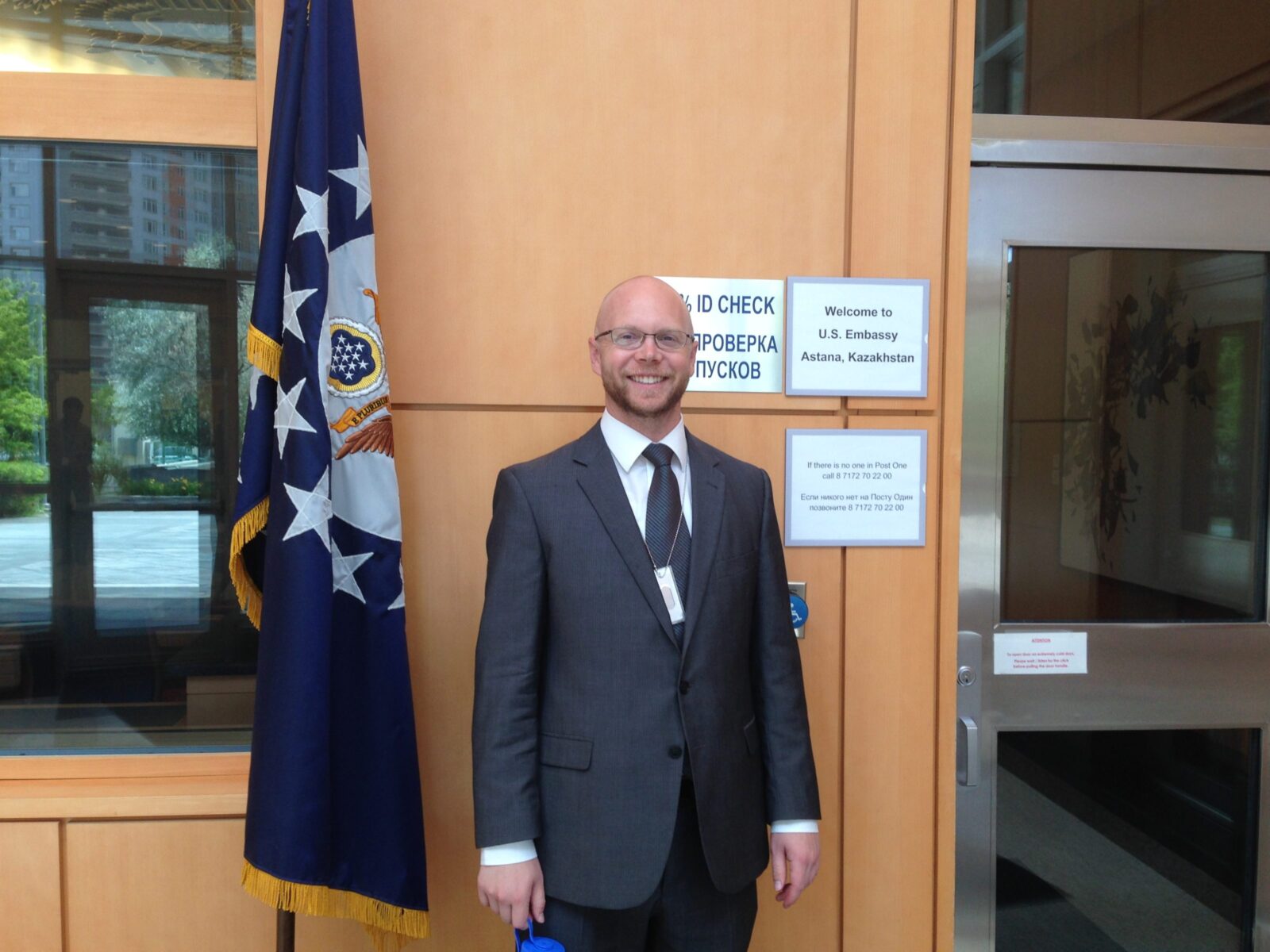
By: Luther Flagstad
This summer I had the opportunity to experience what life is like for Foreign Service Officers (FSOs) in the U.S. State Department living and working in Astana, Kazakhstan. On an eight-week assignment as the Political/Economic Sections’ Summer Intern, I briefed officers on attended meetings, contributed to reports back to Washington, and honed diplomatic communication and editing skills. But the biggest takeaway was simply the chance to “test-drive” a career I have been actively pursuing for seven years.
I first took the Foreign Service Officer Test (the first step in applying to be an FSO) in 2010 and failed decisively. My feedback was to get more international experience by considering something like the Peace Corps. So after a lengthy application process, I left for the Kyrgyz Republic seeking to gain new skills as a Peace Corps Volunteer in May of 2012. Four years working in grassroots development in the Kyrgyz Republic helped land me in the 2018 cohort of Fordham’s IPED Program with a Public Service Assistantship, and there I was able to extend my research, writing, and analytic skills further. In the fall semester, with substantial support from IPED professors and Fordham staff, I was fortunate enough to successfully apply for an internship position with the State Department.
Having secured a secret-level clearance with two days to spare (a process worthy of its own blog post) I was on a plane for Astana—the capital of Kazakhstan. I know that my regional experience and interests helped land the internship—that and the fact that there aren’t droves of students lining up to go to Central Asia. Yet, despite its remoteness, Kazakhstan is one of the most exciting and dynamic places to work and will continue to be so over the next thirty years.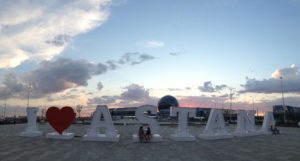
Suddenly separated from its former fellow Soviet Republics in 1991, Kazakhstan struggled through the 1990s after an enormous economic contraction. But newly discovered oil and gas deposits on the Caspian Sea in the late 1990s afforded Kazakhstan massive subsequent growth, tripling its GDP per capita in purchasing power parity since 2000. The government is assiduously pursuing policies to bring Kazakhstan into the top thirty economies in the world by 2050. While this process won’t be perfectly smooth—Kazakhstan has yet to experience a transition of presidential power, and its liberal economic regime sometimes moves in fits—the country is emerging with many successes to its credit as well. Kazakhstan beat out Thailand for a two-year, non-permanent seat on the UN Security Council for its 2017-2018 tenure, is host this summer to the World’s Fair’s EXPO 2017 on the theme “Future Energy,” and is currently hosting continuing rounds of talks in Astana on Syrian settlement.
Today, due to the U.S.’s own political upheavals, maybe you are among the many university students who once dreamed of a career in public service but are now reconsidering their options. I would like to encourage you, however, as long as you have this dream, to keep these passions alive and to nurture them, whether through community activism, a job in local government, or any work that serves others. Fortunately for American citizens, U.S. government is bigger than one person—it always has been—and foreign and domestic policies are written, communicated, and implemented by thousands of individuals striving for the rights for all to life, liberty and the pursuit of happiness. Policy is not something that exists on its own but is forwarded by the aggregate decisions of many. The U.S. government needs individuals of strong character who will edge the needle through consistent, daily commitment and service.
To be honest, I personally have not yet settled on how I will contribute and have opted to try out a number of different sectors as an IPED student. This is where IPED has a huge advantage; because of the schedule, content of coursework, incredible support of the program’s director and staff, access to professors, small cohort size, and comradery and encouragement from classmates, students can get the hands-on experience necessary to jump into a career upon graduation. I have interned with the Council on Foreign Relations and the U.S. Department of State, assisted a professor with a research project, and coordinated the IPED Lecture Series—all in my first year! Over this next year I will continue to make use of these opportunities, seeking an internship with The Economist Intelligence Unit and a Boren Fellowship for Russian language study. With IPED, these outside fellowships, internships, and experiences are not just encouraged, but are actively supported and are consistently realized by IPED students every year.
If you desire to pursue an internship in the U.S. government, please reach out to me or any of the other IPED students doing government work this summer. And, if you’re interested in private sector consulting, internships with the United Nations, NGO work, or language study, there are IPED students ready to answer your questions on those areas as well.
Best of luck in your summer endeavors!

